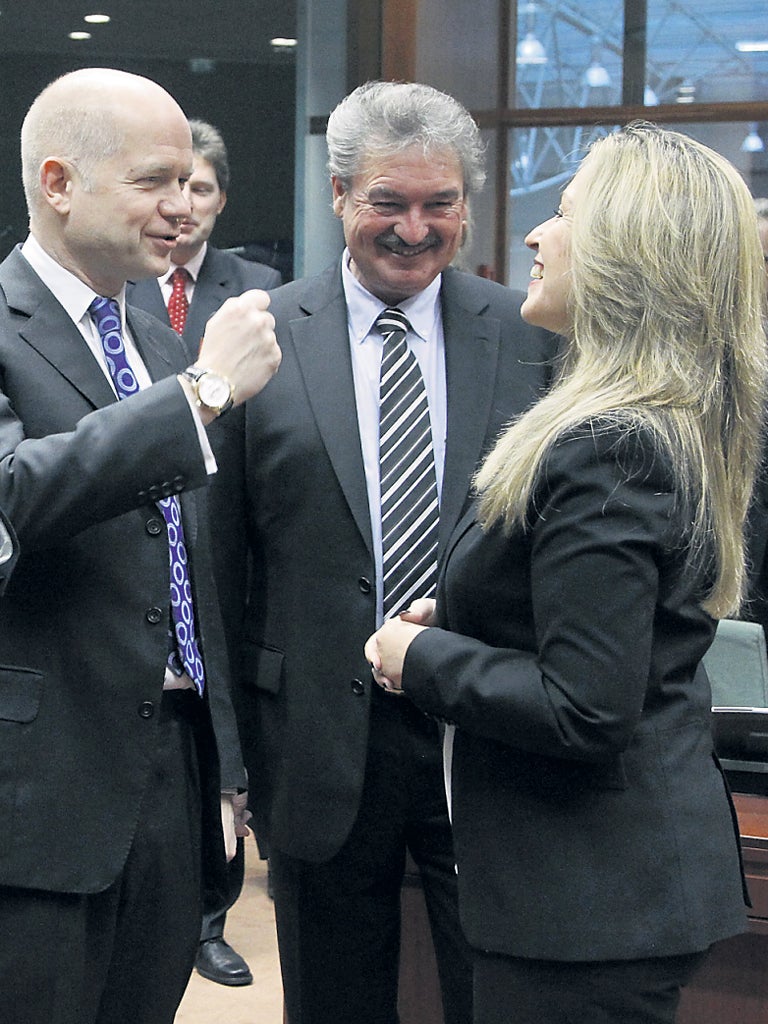EU sanctions tighten screw on Iran over nuclear weapons
Travel restrictions and asset freezes unveiled, with plans to cut oil imports by members

The European Union announced yesterday that new tough new sanctions will be imposed on Iran over the country's alleged attempt to acquire a nuclear arsenal, but the meeting in Brussels failed to agree on the imposition of an oil embargo aimed at hitting Tehran's main source of revenue.
EU foreign ministers set out plans under which member countries would gradually cut down on supplies from Iran, with France, which has been pushing for oil sanctions, claiming to be overcoming resistance among some states which had expressed concerns over the economic costs of an embargo.
Petroleum analysts have warned that global energy prices would rise following a ban on Iranian supplies, at a time when western Europe is struggling with recession. Greece was reported to be particularly worried as Tehran has been offering deals on oil at a time when banks are reluctant to extend loans to Athens.
But French foreign minister Alain Juppé insisted that alternative sources would be found to replace Iran and costs could be kept down.
He said following the talks: "We are working to offset any shortfall if an oil embargo were imposed. We have to work with different partners so that the interruption of deliveries from Iran could be compensated by a rise in production in other countries. Greece has voiced some concerns, we have to take them into account."
Additional steps were taken to subject 37 Iranian nationals and 143 "entities" – organisations and companies – suspected of being involved in work on a possible nuclear weapons programme to travel restrictions and asset freezes.
Among the targets, it is believed, are the Islamic Republic of Iran Shipping Line, members of the Islamic Revolutionary Guards Corps and commercial concerns under their control. The full list will be issued today and more names are expected to be added before EU foreign ministers hold their next meeting in January.
The storming earlier this week of the British embassy and residences in Tehran during a demonstration, which London claims was state orchestrated, was discussed during the meeting and, according to diplomatic sources, added to the argument for taking punitive action against the Iranian regime.
The UK has since pulled its diplomats out of Iran. Germany, France and the Netherlands have recalled their ambassadors in gestures of solidarity.
A diplomatic source said: "This was a big, big own goal for Iran. They got condemned even by Russia and China and certainly helped those in the EU who wanted to take a more robust line."
British Foreign Secretary William Hague said: "The EU demonstrated clear unity and solidarity with the UK on the outrageous attacks on our embassy. I strongly welcome the EU's decision to intensify pressure on Iran following the report by the IAEA [International Atomic Energy Agency]."
The EU also imposed new sanctions on Syrian individuals and businesses with the aim of pressuring the regime there to halt its deadly crackdown on anti-government protests.
Mr Hague claimed transgressions by Iran and Syria were intertwined because Tehran backed Bashar a-Assad's regime.
"There is a link between what is happening in Iran and what is happening in Syria," he said.
Join our commenting forum
Join thought-provoking conversations, follow other Independent readers and see their replies
Comments
Bookmark popover
Removed from bookmarks